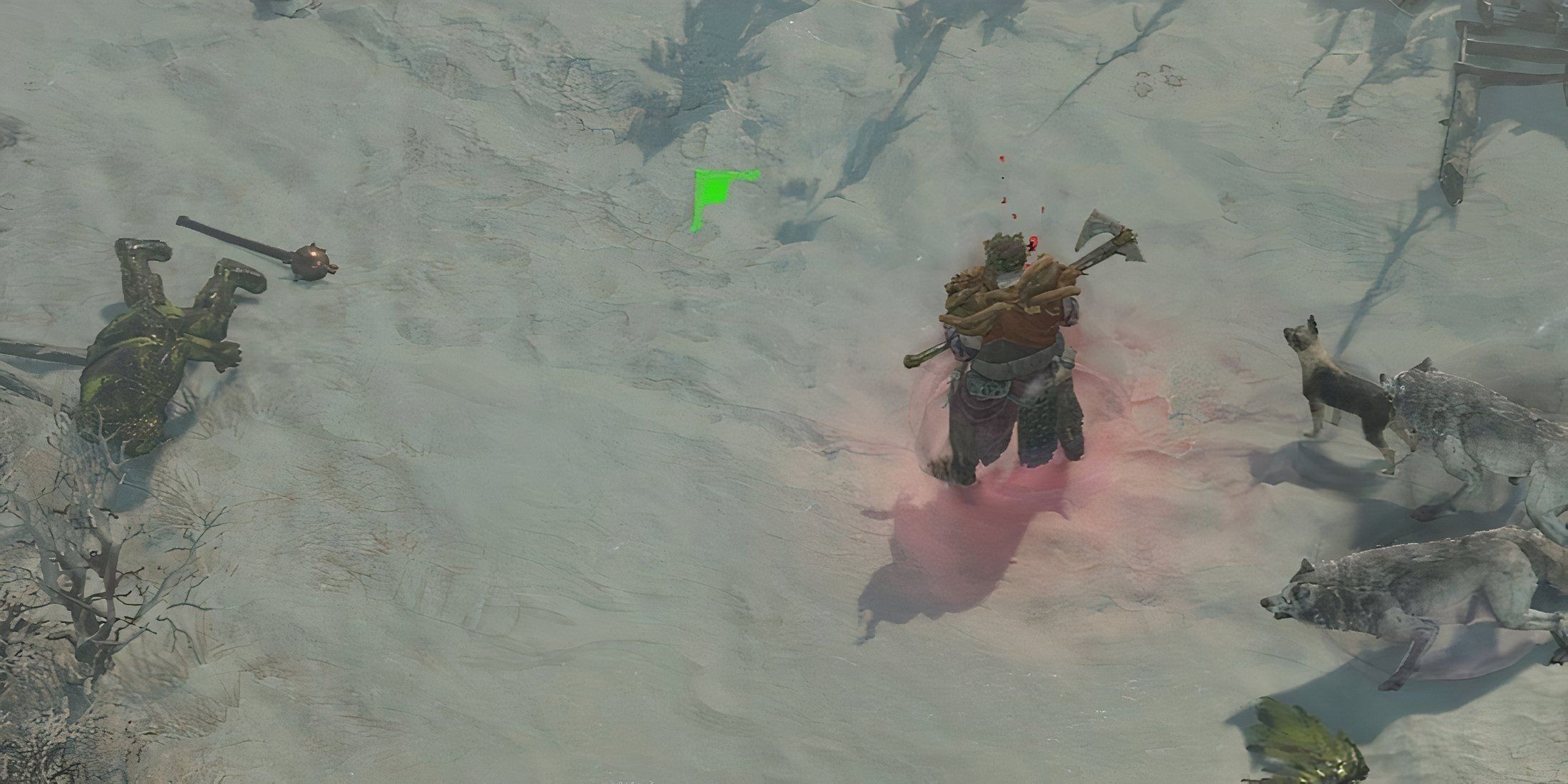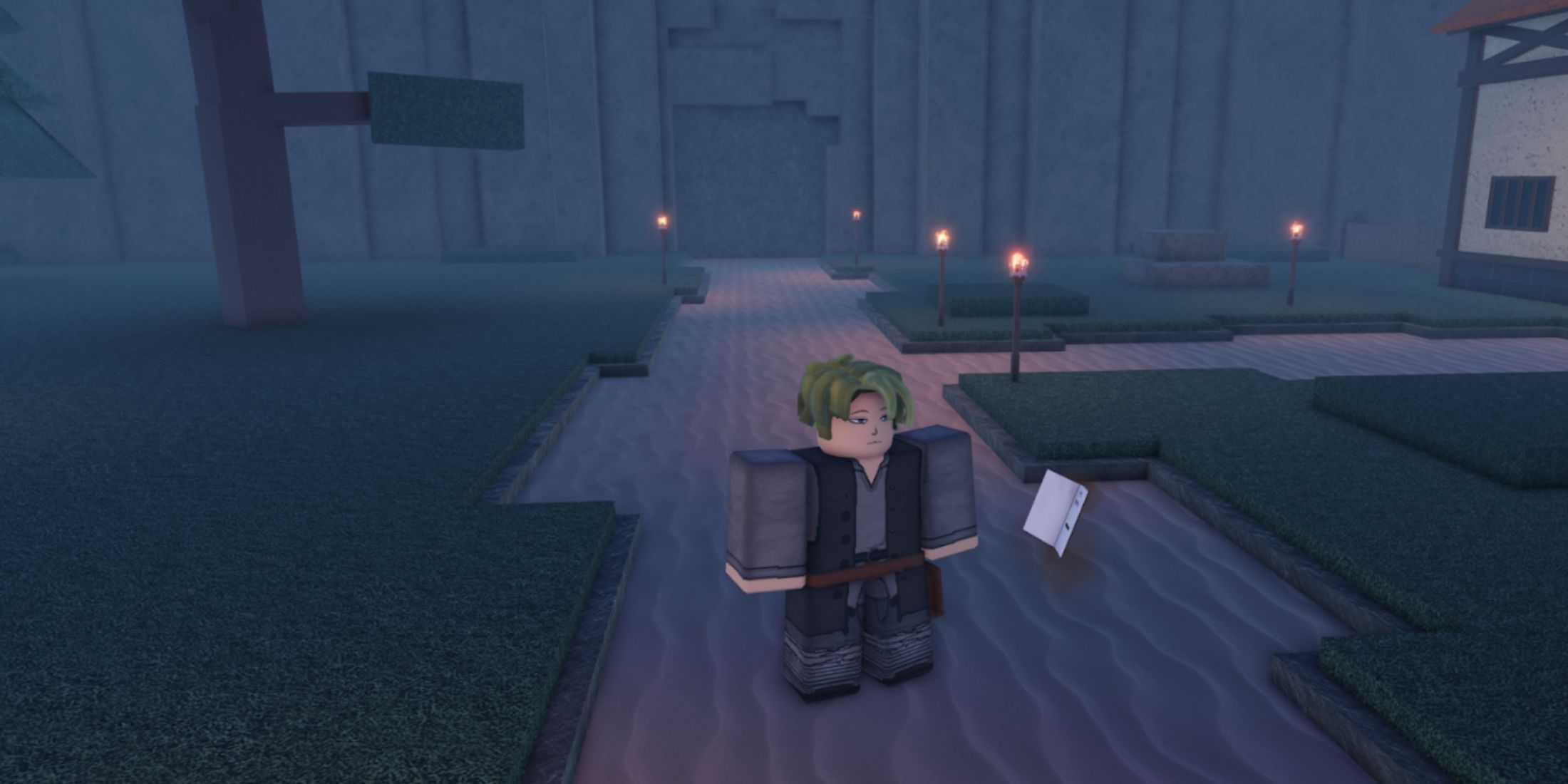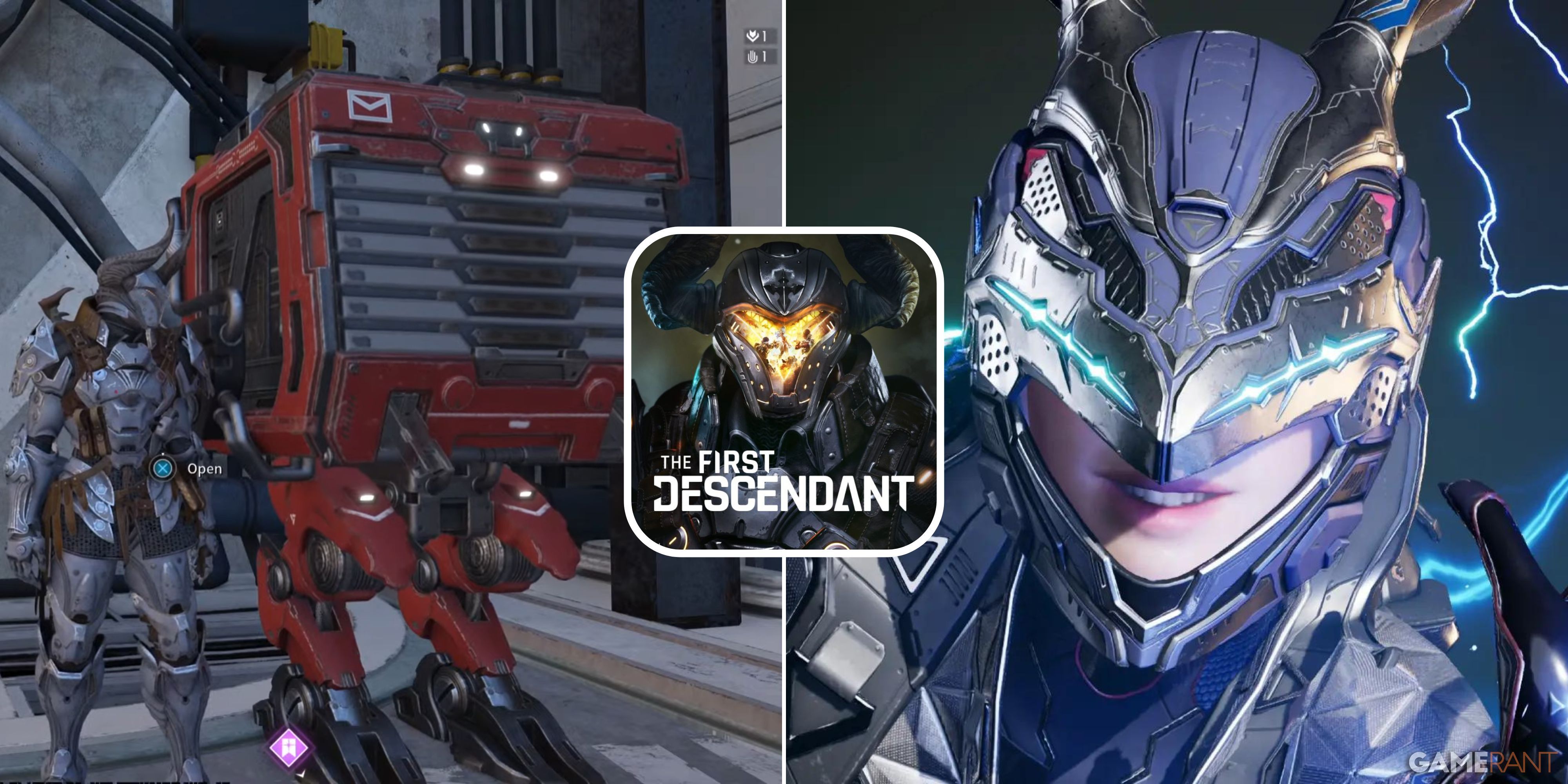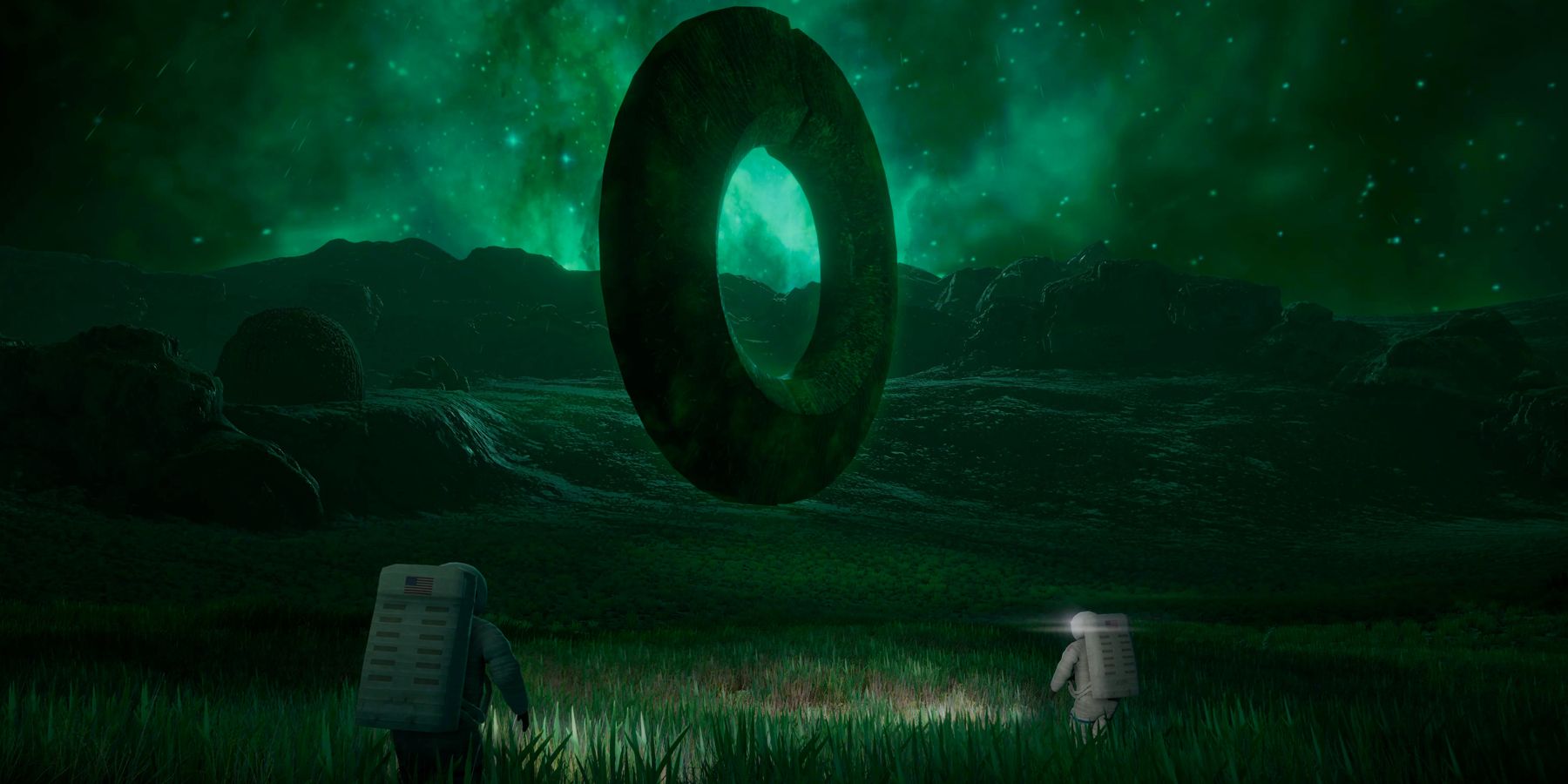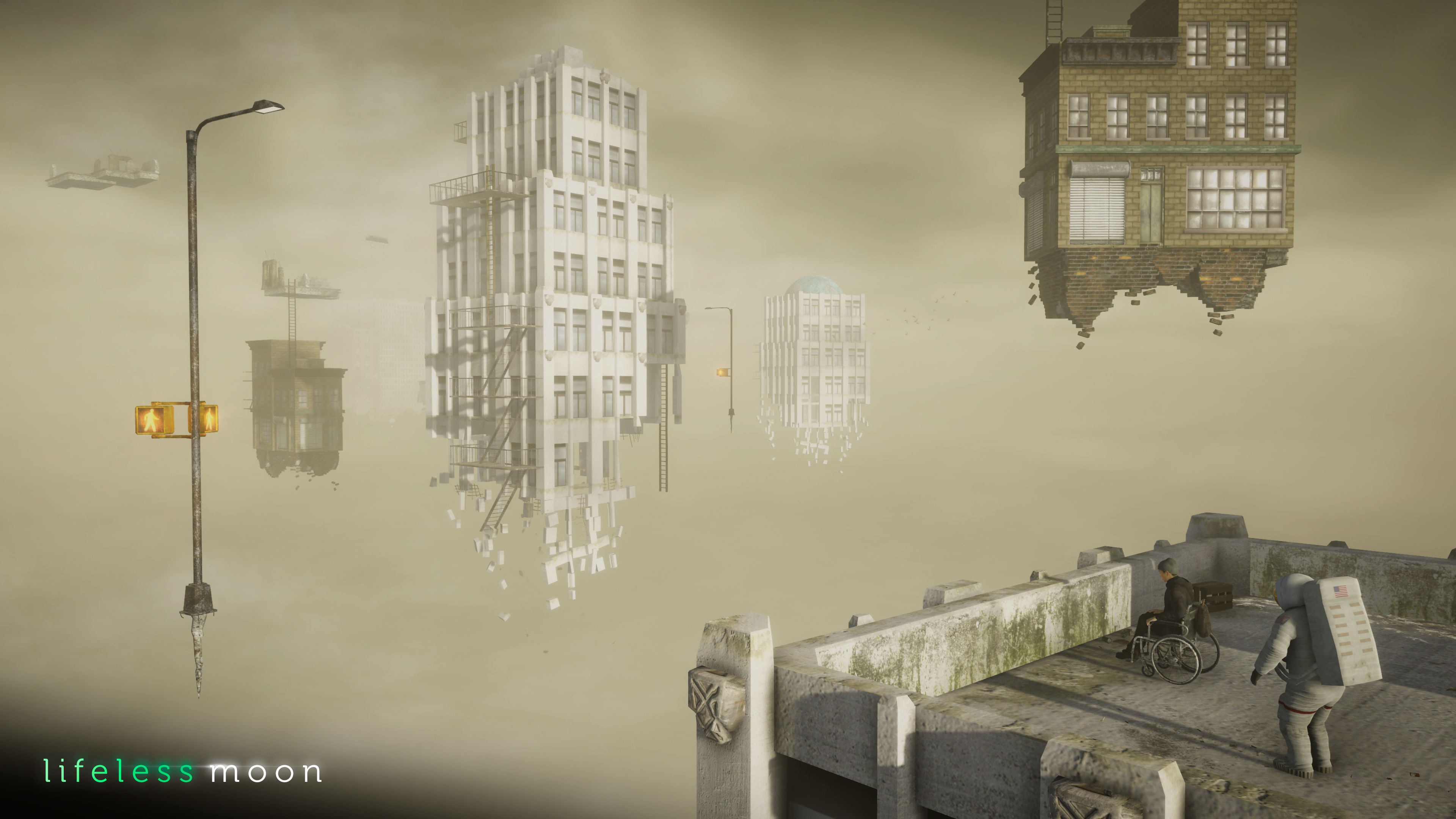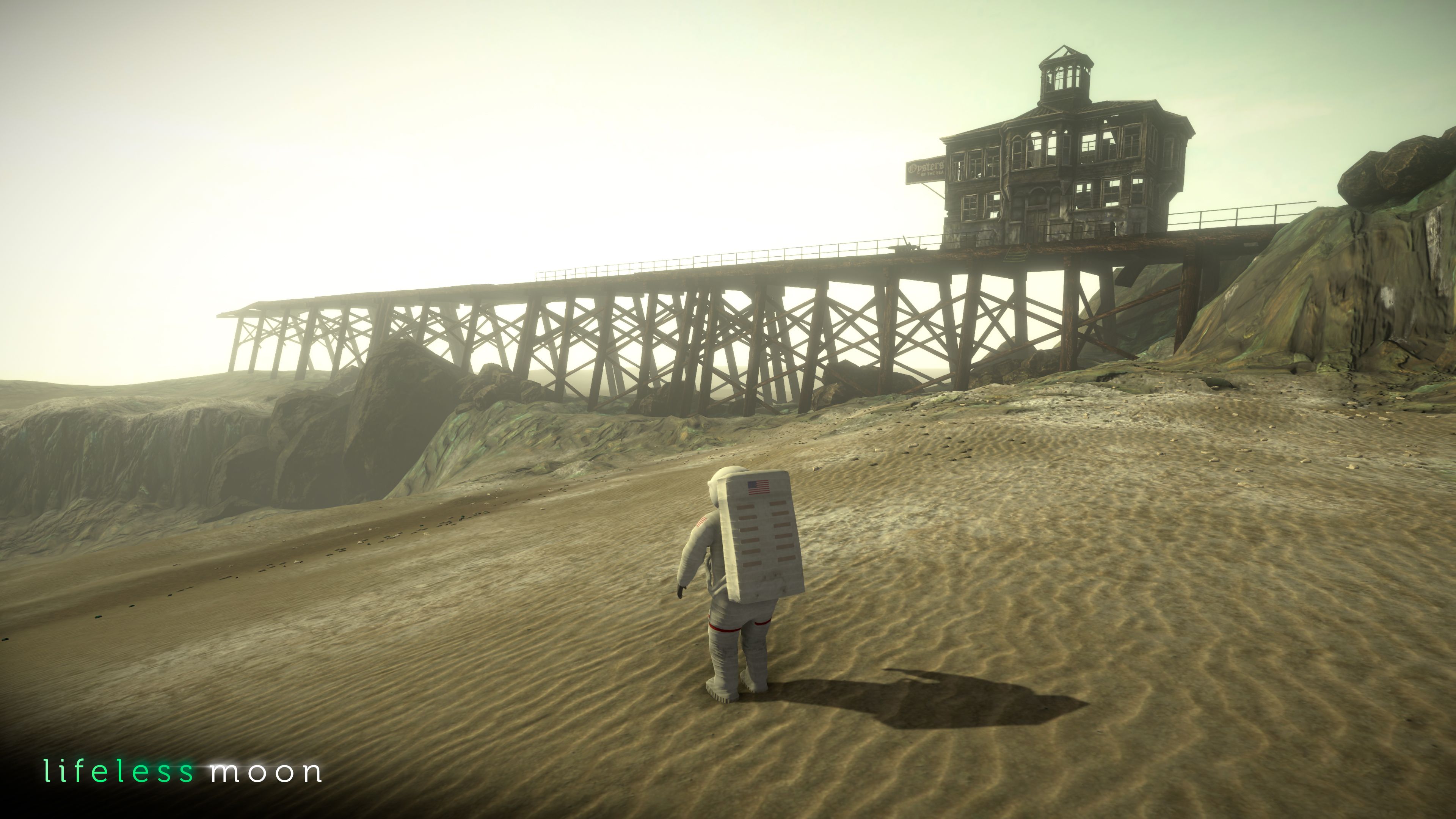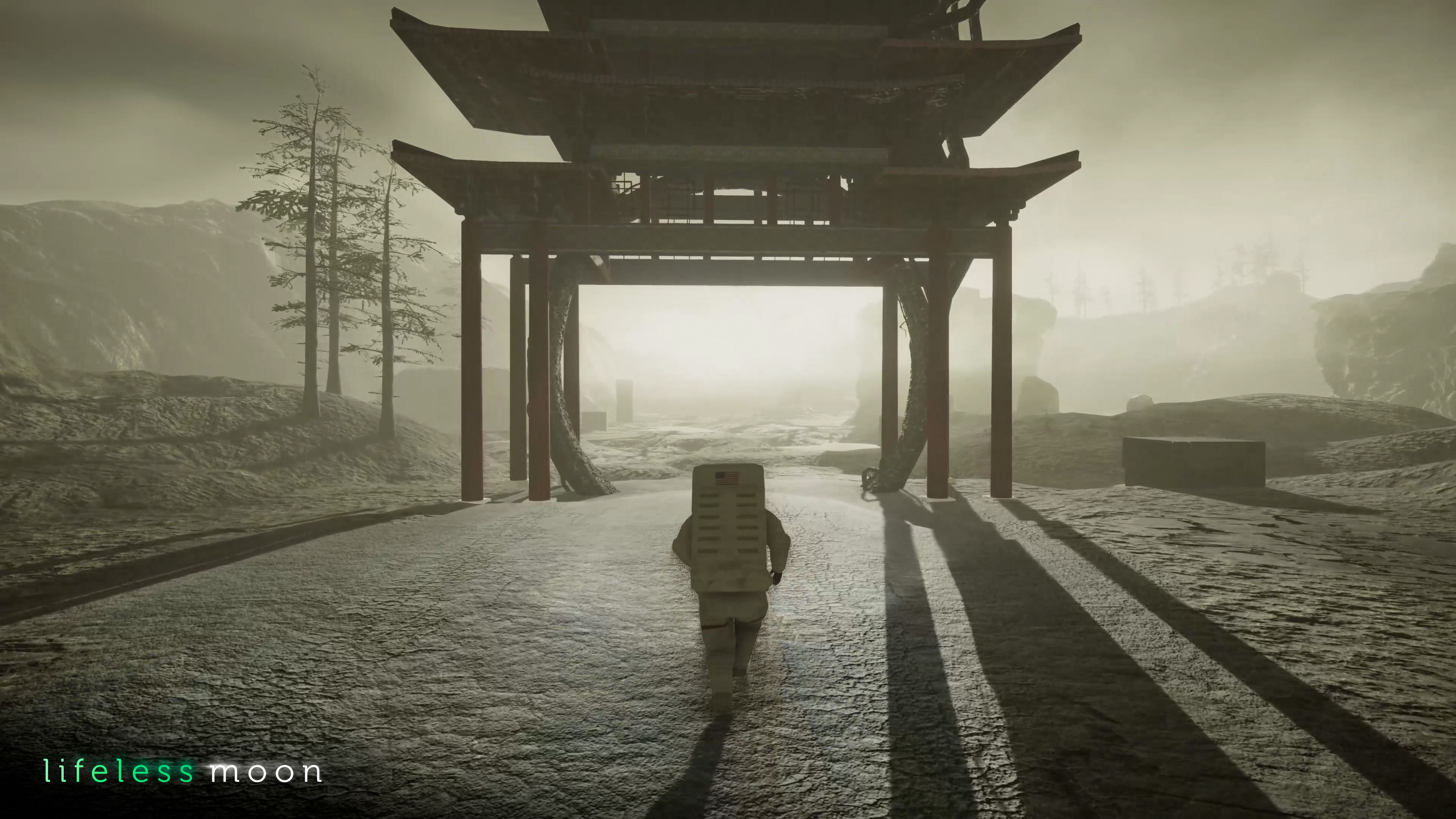Lifeless Moon is the newest indie title from Serenity Forge. The story takes place in the same universe as cult-favorite Lifeless Planet and tells a story inspired by sci-fi stories of the Space Race and Cold War eras. This time around Serenity Forge has expanded on many features of the previous Lifeless title but this time with a heavier focus on narrative storytelling.
Game ZXC speaks with David Board developer of Lifeless Moon about the features of his newest title and how they expand upon those of Lifeless Planet, as well as the personal story that Board hopes will shape the experience of players. This interview has been edited for brevity and clarity.
GR: Please start off by introducing yourself. What was your involvement on Lifeless Moon?
Board: I’m David Board, the developer of Lifeless Moon. I’ve had a ton of help along the way, but I’ve done the majority of the art and development work over the last 7 years. It’s been quite a journey punctuated with some un-fun health scares, but it’s good to be at the finish line, and I’m super excited I finally get to share this adventure very soon!
GR: Lifeless Moon is described as being the “spiritual successor” to Lifeless Planet. How exactly are the two titles connected? What makes them different from one another?
Board: It’s actually kind of a prequel with a totally new location and new characters, but both games inhabit the same universe. Without giving too much away, there are themes about the strange phenomena encountered in both games, but while Lifeless Planet was set in the near future, Lifeless Moon is an alternate history of one of the Apollo missions to the Moon in the early 1970s. Both deal with the Cold War and Space Race eras and are inspired by classic science fiction stories of that time.
GR: You mention that the premise of Lifeless Moon was originally an early alternate concept that was then scrapped for what would become Lifeless Planet. How has the game continued to grow and change from the original idea after you picked it back up?
Board: It changed a ton! It was a spark of an idea, really. And while folks will definitely recognize early similarities—like finding a human-made town in an unexpected place—the stories also diverge pretty quickly. With Lifeless Moon, there are more characters to encounter, and the environments themselves are very much alive in ways that weren’t fully explored in Lifeless Planet.
GR: What have you learned from Lifeless Planet that you’ve carried with you to this new title?
Board: Well, I thought I’d cracked the code on managing game project development, but I was wrong about that! What I did learn was that it’s important to listen to your fans and the kinds of experiences they want.
There’s still platforming in this game, for example, but it’s less frustrating and technical, and there is a lot more attention to the story. I tried to ensure each level was more fleshed out and inviting to explore, so while you’ll visit some vast and desolate places, things change quickly, and it’s easier to traverse.
GR: Can you give us an introduction to your characters? Who are they and how do they find themselves tied up in the story of Lifeless Moon?
Board: I don’t want to spoil the story, but as with Aelita in Lifeless Planet, they are quite elusive and mysterious—at least initially. The strange phenomenon (that I won’t name here) impacts the player character, but we find the characters in this world have been interacting with it for much longer… with much more intense effects!
GR: So we know the game takes place on an expedition to the moon, but what goes wrong on the journey? Can you describe the bizarre world the astronauts find themselves in?
Board: I like to keep players guessing, so at first our character wonders if he might be hallucinating the event that sets up the story. As you know from the trailer, the astronauts lose contact with mission control and then discover themselves in a familiar desert town from back on Earth.
I like setting up huge moments like that and asking the question: what would you do if you found yourself confronted with the impossible? The lead astronaut is a man of science and reason, so how does he process something so unbelievable? In a world of hard science fiction, I love the playfulness of classic sci-fi and try to reflect that spirit of imagination in my stories. If you take it too seriously, you’ll miss the adventure and the “what if” of it all, so I try to strike a balance.
GR: In what ways do puzzles play a more central role in the game? What is an example of some of the kinds of puzzles players can expect to see?
Board: The biggest difference is that the game involves a number of first-person sequences that each involve some kind of puzzle. So, the game is still primarily a third person exploration experience, but at various times you can walk inside a room or a building of some sort and interact with elements up close in first person. These puzzles are a core part of the mystery of Lifeless Moon, and I like the way they break up the game flow and let you get more hands on.
GR: How has the world been designed to encourage exploration and discovery? How do these elements differ from those of Lifeless Planet?
Board: Lifeless Planet was very linear in most areas, but Lifeless Moon environments tend to be more open. In addition, things change often, and this leads to some surprising moments… the “lifeless” titles are applied a bit ironically. The worlds appear lifeless at first, but then things develop in unexpected ways. I’m sorry I’m not sharing more, I don’t want to spoil too much!
GR: How has the use of the jetpack helped contribute to this sense of discovery? Has having the jetpack allowed for more creative level design? In what ways?
Board: Probably the biggest thing it does is allow for a larger scale. If you are just an Apollo astronaut, your mobility is pretty limited and pretty slow. But give the character a jetpack and suddenly the scale and scope of the environments changes, and you can now make vast jumps and reach places that would otherwise be impossible.
GR: With this following up Lifeless Planet, I’m sure you already have a community of fans who loved the first title. What has their reaction been to Lifeless Moon so far? Are they drawn to any particular aspect of what you’ve shown?
Board: Yeah, the fans are amazing! The first game blew away my expectation for sales. I was hoping for maybe a few thousand copies sold, but we’re into the hundreds of thousands, plus distribution to millions of people through the Epic Games Store promo a couple years ago. And combined with the Kickstarter campaigns, I just get emails all the time from people saying how much they loved the game.
I find it appeals to a broad range of players including older folks who remember the ‘70s and ‘80s and the Space Race, but also younger players who are craving a story-driven experience with a bit of a cinematic feel. These games are more relaxed experiences in terms of gameplay, but the excitement comes in the stories they tell.
GR: What is something you hope players take away from Lifeless Moon?
Board: The game deals very much with loss and how both life and death are a process of transformation. When I began work on the game, I included a number of references to my childhood and my childhood best friend. The places we used to go and things we did. Then two years ago he was killed by a drunk driver, and so suddenly the themes of my game became very personal.
I hope players connect with the story in a personal way too, and maybe it’s too much for this game to bring healing, but at the very least, maybe it can provide a meditative moment and a chance for players to expand their perspective a little bit.
GR: What is an aspect of the game that you’re most excited for players to experience? Why?
Board: As I’ve hinted to, there are a number of surprising moments in the game. I’m sure from the trailers, people will get a sense of where things are going, but I hope they also enjoy some of the bigger moments where the environments themselves transform in unexpected ways. This took a lot of time, as there’s at least a couple layers to every location, but it was also the most rewarding to create, and also I think the most interesting part of the game.
GR: This is my fun wrap up question: if you’re no longer living in Alaska, where do you get your alien landscape inspiration from now?
Board: We still try to visit family up there, though the pandemic has made that harder. There’s also a ton of natural beauty around the Seattle area as well. I am looking out my office window right now at snowy mountains, and the coastlines of the Pacific Northwest are spectacular as well!
GR: Is there anything else you’d like to share that we haven’t touched upon yet?
Board: Just want to say that while I did almost all of the core game development, I did indeed get a ton of help, including with the incredible soundtrack by composer Rich Douglas. He actually commissioned an accomplished cellist (Andrew Dunn, who’s contributed to games like God of War and Destiny 2) to record custom samples for the orchestral sequences. I’ve had more than a few people say the soundtrack from Lifeless Planet was their favorite part of the game, and I’m OK with that! I know the music Lifeless Moon will not disappoint either!
[END]
Lifeless Moon is available to play now on PC and will release on consoles sometime in the future.

